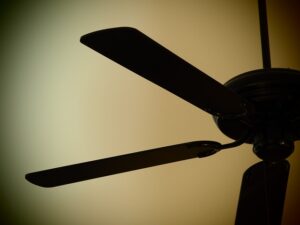 Protecting Seniors in Nursing Homes from Heat Illnesses
Protecting Seniors in Nursing Homes from Heat Illnesses
Extreme heat is unbearable and potentially life-threatening for us all, but the elderly are much more vulnerable when temperatures soar into the nineties. As a nursing home lawyer Memphis has trusted for decades, I’ve seen these injuries far too often.
Read below to learn more about heat-related illnesses and the responsibility of nursing home staff to protect residents.
What Is Heat Stroke?
Heat injury occurs when the body cannot sufficiently cool itself after reaching 103 degrees Fahrenheit or higher. Without emergency treatment, it can lead to serious complications, including damage to the brain and other vital organs, or death.
Warning signs include:
- High body temperature (103 degrees Fahrenheit or higher)
- Hot, red, dry, or damp skin
- Fast, strong pulse
- Headache
- Dizziness
- Nausea
- Confusion
- Passing out
Older Individuals Face a Greater Risk for Heat Injuries
As we age, our bodies have more difficulty adjusting to temperature shifts. There are various factors at play, the CDC notes:
- Seniors are more likely to have chronic conditions that change typical body responses to heat.
- They are also more likely to take prescription medications that impact the body’s ability to regulate its temperature or sweat.
Nursing Home Staff Must Take Precautions to Prevent Heat Stroke
Employees at assisted living facilities have a responsibility to protect residents from heat-related illnesses. That means both maintaining a safe, comfortable temperature inside the facility, in both common areas and bedrooms, and properly supervising seniors when they are outside in the heat. (Though they should not be outside during peak hours.)
Here are additional preventative measures that nursing homes should take.
- Ensuring that seniors are appropriately dressed for the weather, with light clothes, cool fabrics, and hats to shade faces from the sun.
- Regularly serving water and keeping seniors hydrated.
- Refraining from serving caffeinated or alcoholic beverages during extreme heat.
- Keeping residents inside during the hottest parts of the day.
- Limiting strenuous physical activity on hotter days.
- Providing fans and fully operating AC.
Heat Stroke Requires Immediate Medical Attention
Time is of the essence with heat injuries. If a senior appears to be suffering from heat stroke, he or she needs immediate care. Nursing home staff should take the following steps.
- They should move the resident inside or to a cool area.
- Give them a shower or a bath to cool their body temperature.
- Position them close to an air conditioning unit or a fan.
- Have them take small sips of water or electrolyte-filled drinks.
A Nursing Home Lawyer Memphis Trusts
It’s never an easy choice to move a loved one into an assisted living facility. Sadly, seniors don’t always receive the care they deserve once they are there. Heat injury is just one example of the consequences of nursing home negligence, which usually stems from understaffing. No matter the cause, these mistakes can be devastating, and they are inexcusable.
If nursing home employees don’t take proper precautions to prevent your loved one from heat injury or other conditions, you could be entitled to compensation for medical care and other losses.
It goes without saying that no amount of compensation can ever account for the harm a senior has suffered, but the responsible parties must be held accountable. That’s our job; yours is to focus on healing.
Our lawyers are known for our compassion and results. We’re committed to getting justice for your family. Call (901) 327-2100 or fill out the form on this page to speak with the nursing home lawyer Memphis trusts.
